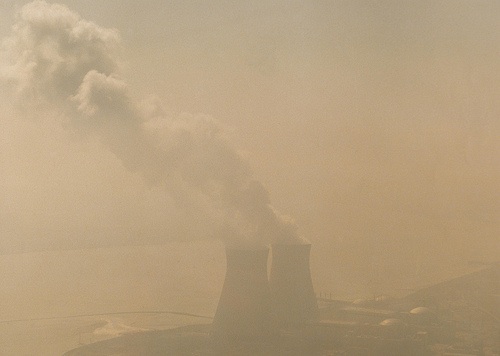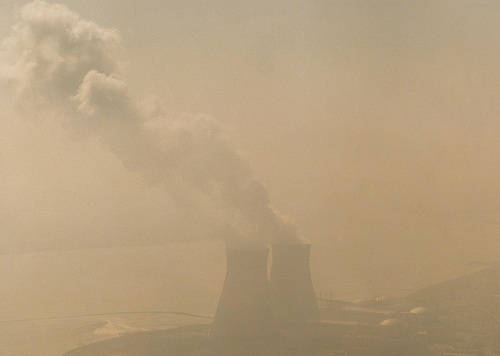 Photo: Joost J. Bakker
Photo: Joost J. Bakker
The possibly-impending meltdown of three very shaky nuclear reactor cores at the Daiichi plant in Fukushima, Japan, isn’t doing much for the public image of nuclear power, a source of energy about which fans of planet Earth are divided.
Kate Sheppard, Mother Jones‘ enviro reporter on the Hill, speculates on Twitter that the biggest Senate proponents of new nuclear power are kind of freaking out right about now:
I wonder if it’s telling that the office of every strongly pro-nuclear senator appears to be in a full-staff meeting right now.
Nuclear used to be the only date movie both sides of the aisle could agree on, reports The New York Times:
But even staunch supporters of nuclear power are now advocating a pause in licensing and building new reactors in the United States to make sure that proper safety and evacuation measures are in place. Environmental groups are reassessing their willingness to see nuclear power as a linchpin of any future climate change legislation.
In light of the disaster in Japan, nukes could become a damned if you do, damned if you don’t situation:
The policy implications for the United States are vexing. “It’s not possible to achieve a climate solution based on existing technology without a significant reliance on nuclear power,” said Jason Grumet, president of the Bipartisan Policy Center in Washington and an energy and climate change adviser to the 2008 Obama campaign.
It’s probably a bad idea to build nuclear reactors in the path of earthquakes and tsunamis. The Times, again:
[P]reliminary assessments of the Fukushima Daiichi accidents suggested that too little attention was paid to the threat of tsunami. It appeared that the reactors withstood the powerful earthquake, but the ocean waves damaged generators and backup systems, harming the ability to cool the reactors.
But maybe they are handy in places that aren’t as prone to natural disaster? France, for one, isn’t going to get rid of the 75 percent of its generating capacity that comes from nuclear power, reports the BBC:
French industry minister Eric Besson pointed out that France did not have the same risk of earthquake as Japan: “All French nuclear plants have been designed with seismic risk and flooding risk factored in.”
But he added (in a phrase which may be a template for pro-nuclear politicians): “We don’t wait for an accident to happen in Japan to raise the question over here — but this doesn’t mean that we can’t re-evaluate the situation.”
In response to the disaster, Germany is halting its plans to extend the life of its remaining nuclear power plants, reports the AP:
“During the moratorium, we will examine how we can accelerate the road to the age of renewable energy,” [Prime Minister Angela] Merkel said.
Politicians in the U.S. are also talking about shutting down existing nuclear power plants, says The Boston Globe:
Vermont Governor Peter Shumlin, a Democrat, said Japan’s crisis illustrates why the Vermont Yankee nuclear plant, near Brattleboro, should not operate after next year. The day before Japan’s earthquake, the Nuclear Regulatory Commission extended the plant’s license for 20 years beyond 2012, when its original license was set to expire.
But not if quick-witted energy executives are able to sway the public with their sarcasm!
Laurence Smith, a spokesman for Vermont Yankee’s owner, Entergy Corp., declined to comment on the governor’s statement, saying “he’s free to say whatever he wants.” But the Nuclear Regulatory Commission’s review shows the plant is safe, he said.
“We’re not going to have a tsunami on the Connecticut River in Vernon, Vermont,” he said.
Read more:
“Stewart Brand’s nuclear enthusiasm falls short on facts and logic,” Grist
“U.S. Nuclear Industry Faces New Uncertainty,” The New York Times
“Germany Nuclear Power Plant Extension Suspended,” The Associated Press
“Crisis Underscores Fears About Safety of Nuclear Energy,” The New York Times
“Japan disaster reopens nuclear debate in Europe and US,” BBC
“US nuclear energy gets more scrutiny,” The Boston Globe


